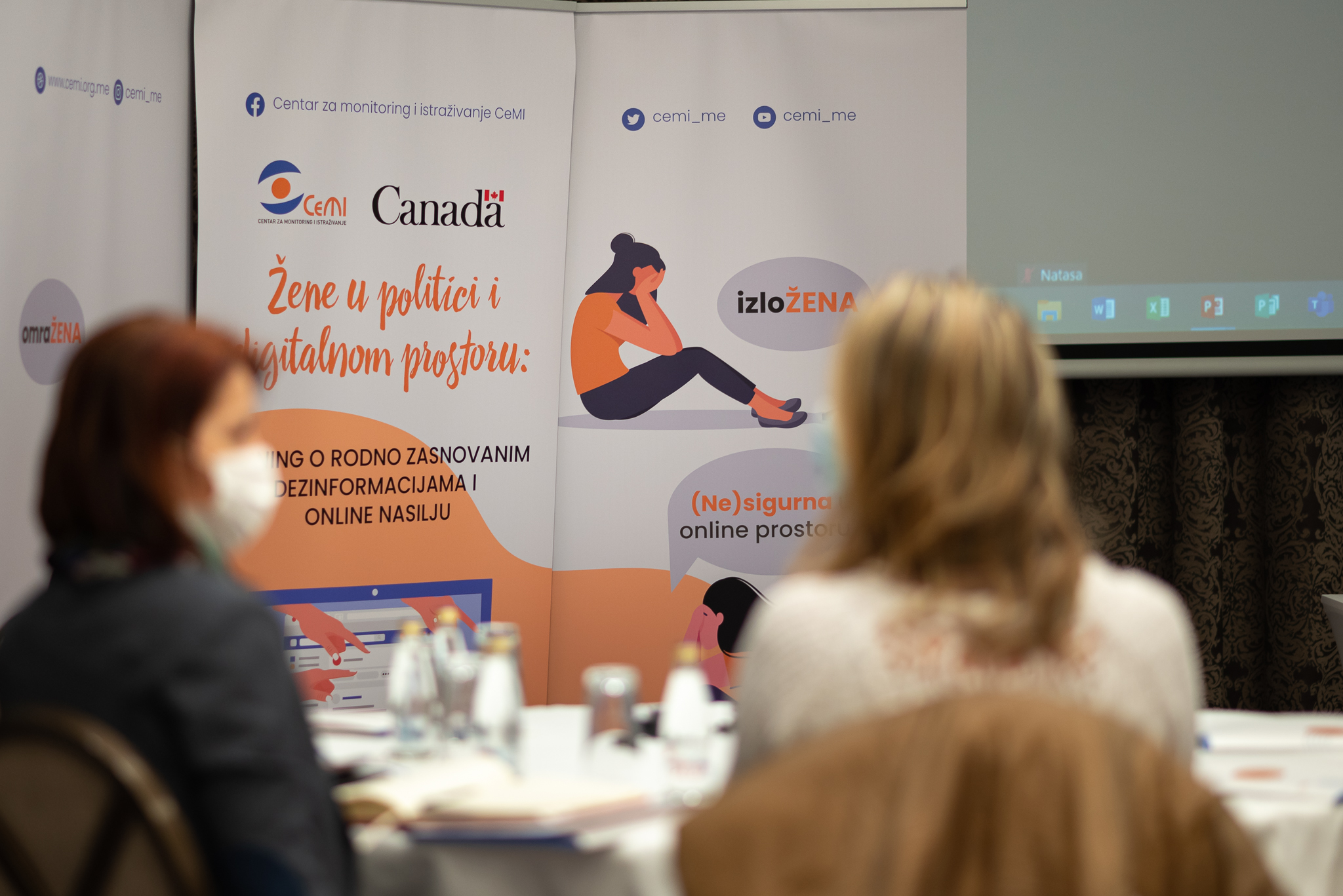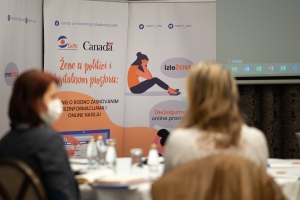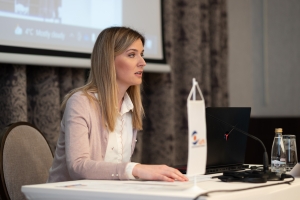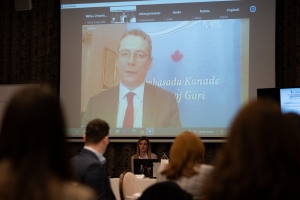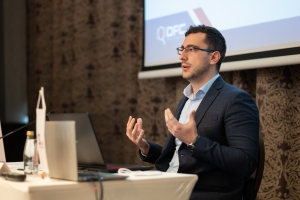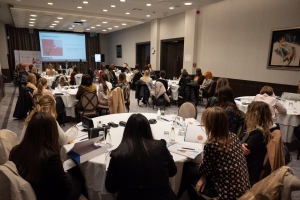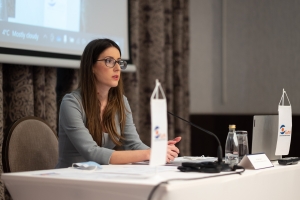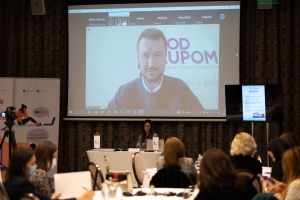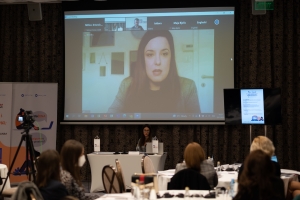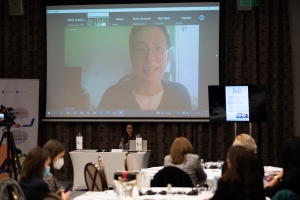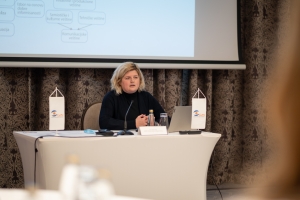It is necessary to work on strengthening institutional protection, so that women feel safer in the online space, and be empowered to react if they become victims of online violence. This was concluded at the training "Women in Politics and Digital Space: Gendered Disinformation and Online Violence Training" organized by the Centre for Monitoring and Research (CeMI) on Friday, January 28, 2022.
Misogyny, gender-based misinformation and online violence are emerging as an increasing problem in Montenegro. These phenomena affect all factors of society, and women have been a particular target in recent years. In addition to legal regulations, the best way to combat phenomena is education about their existence and features, recognition mechanisms and digital rights.
An introduction to the issue of online violence and disinformation against women was given by the program director of CeMI, Ms. Teodora Gilic and H.E. Ambassador Giles Norman. In collaboration with regional lecturers, CeMI also presented numerous examples of gender-based violence in the digital environment in Montenegro and the region, as well as examples of good practice and mechanisms used to contribute combating this phenomenon. Comparative findings from Montenegro and the region were presented by Mr. Milan Jovanovic, Head of Analytics by Digital Forensic Center DFC (Montenegro), Ms. Danica Ilic, journalist and media consultant by Institute for Media Diversity (RS - UK), Mr. Dario Jovanovic, Project Manager by Centres for Civic Initiatives CCI (Bosnia and Herzegovina), Ms. Natasa Vajagic, activist by Center for Civic Initiatives CGI Porec (Croatia) and Ms. Milica Zrnovic, project coordinator by CeMI (Montenegro).
The focus of the training was also on acquiring digital skills and information - media literacy. Prof. Dr. Natasa Ruzic lectured on media literacy and presented the main tools for recognizing gender-based disinformation and fake news. She also emphasized the importance of solution journalism or solution-oriented journalism with the aim not only to inform the public about a social problem, but also to offer a solution to combat it. This type of journalism critically explains a certain social problem and focuses on examples of good practice and effective solutions that have been somewhere else already applied.
The conclusions of the training were that there is a lot of discussion about inappropriate and misogynistic comments on social networks and online portals addressed to women, however, the fact is that behavior in the digital space is still not legally regulated and institutional protection mechanisms are still not applied in an adequate way. To make women feel safer in the online space, and to empower them to react if they become victims of online violence, it is necessary to work on mechanisms of legislative and institutional protection.
The training brought together more than 50 women from political parties, NGOs, media, international institutions, and it was organized within the project "Combating gendered disinformation and online violence against women in politics in Montenegro", which is financially supported by the Embassy of Canada to Serbia, Northern Macedonia and Montenegro within the Canada Fund for Local Initiatives (CFLI).
